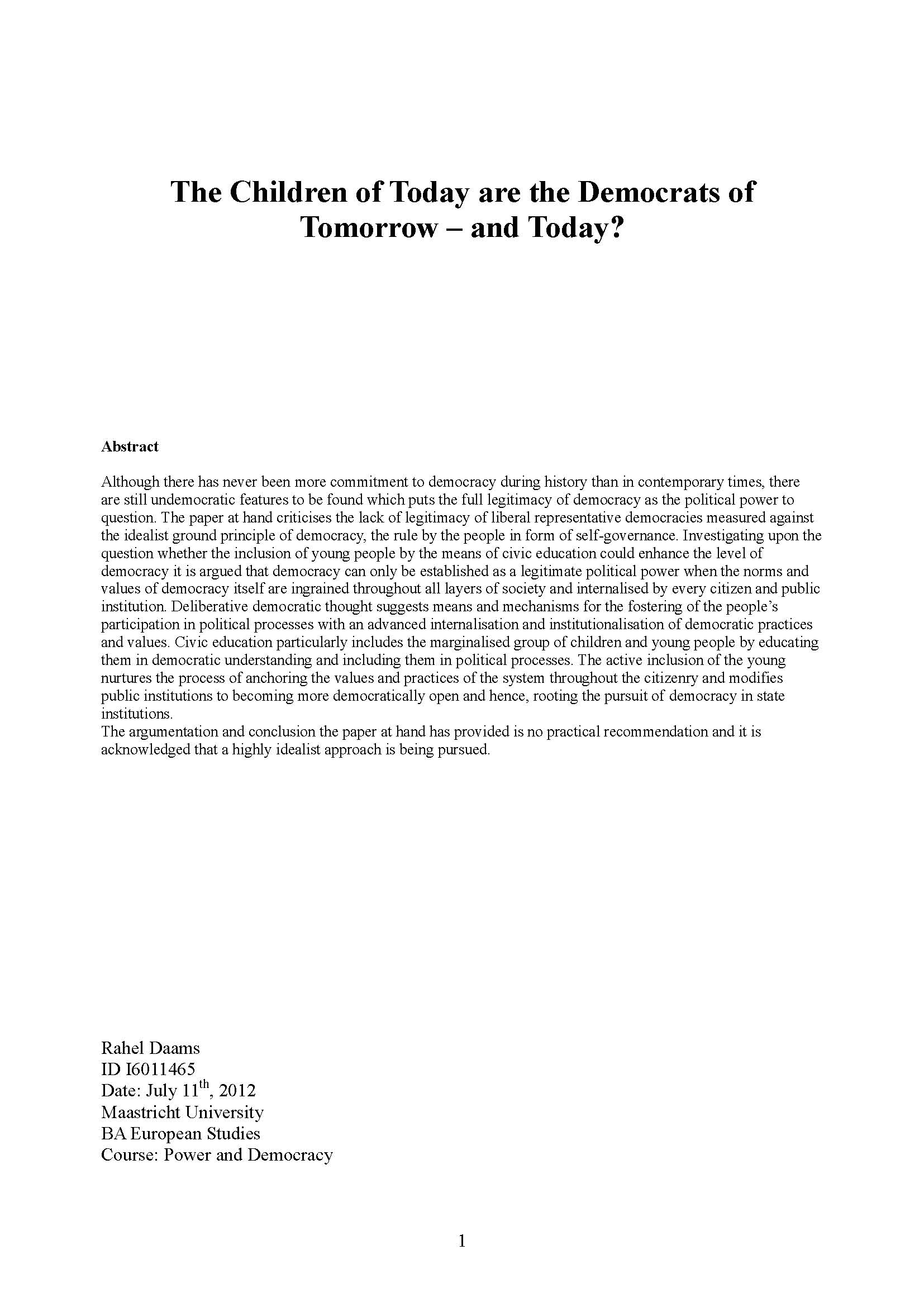Although there has never been more commitment to democracy during history than in contemporary times, there are still undemocratic features to be found which puts the full legitimacy of democracy as the political power to question. The paper at hand criticises the lack of legitimacy of liberal representative democracies measured against the idealist ground principle of democracy, the rule by the people in form of self-governance. Investigating upon the question whether the inclusion of young people by the means of civic education could enhance the level of democracy it is argued that democracy can only be established as a legitimate political power when the norms and values of democracy itself are ingrained throughout all layers of society and internalised by every citizen and public institution. Deliberative democratic thought suggests means and mechanisms for the fostering of the people’s participation in political processes with an advanced internalisation and institutionalisation of democratic practices and values. Civic education particularly includes the marginalised group of children and young people by educating them in democratic understanding and including them in political processes. The active inclusion of the young nurtures the process of anchoring the values and practices of the system throughout the citizenry and modifies public institutions to becoming more democratically open and hence, rooting the pursuit of democracy in state institutions.
The argumentation and conclusion the paper at hand has provided is no practical recommendation and it is acknowledged that a highly idealist approach is being pursued.
Rahel Daams




